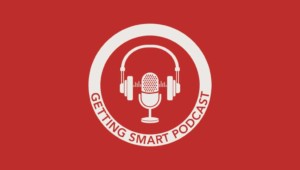Smart Cities: Portland

By Tom Vander Ark and Sarah Cargill
“I think Portland is incredibly interesting,” said venture investor Brad Feld in a recent article . “They have a smart counterculture of people.”
Right in downtown Portland, the Oregon Museum of Science and Industry (OMSI) is embarking upon a partnership with Multnomah County Public Library to develop an innovative “maker lab” inspired by YOUMedia in Chicago, a project funded by the MacArthur Foundation and supported by the Institute for Library and Museum Services. OMSI is also paving the way to great STEM education and community learning in the Portland Area. It recently partnered with SparkFun Electronics to offer hands-on engineering and robotics learning for students.
Over at Portland State University, Associate Professor and Chair Gerry Recktenwald in the engineering department is also leveraging SparkFun to provide students with a new learning experience early in their college careers. Students in freshman courses are asked to create and invent small electronics from an inventor kit and 3D printer — a hands-on learning of traditional engineering basics found at other universities.
“It’s going beyond interaction. We’re going to teach you the basics and then we’re going to ask you to demonstrate that you can make it fun to work,” said Recktenwald describing the electrical fans, pumps, and sensors students make with SparkFun kits.
The Portland State engineering school is also partnering with the business school to challenge students to invent, create and bridge entrepreneurial concepts. “It’s really important for our students, particularly engineering students, to know something about business rather than just engineering,” said Associate Professor James McNames.
EdTech Innovation. McNames added that Portland is a hub for innovation and startup interest. Portland State helps play a role in letting knowledge fuel the city. In a time when massively open online courses (MOOCs) and free online universities are disrupting the world of higher education, Portland State is reinventing its value to students. The university is concerned with its ability to improve employability, reputation, assessments and the overall educational experience with hands-on lessons and learning networks to remain competitive in disruptive times.
Curriculum and assessment provider Learning.com recently released EasyTech to help districts prepare for online assessments. The leading Indian edtech company, EduComp, is a majority investor in Learning.com.
NWEA is the leading provider of online adaptive assessments. With content partner CompassLearning, NWEA supports delivery of adaptive K-12 instruction.
Re:think is a Portland-based company that is helping young people make decisions about college, and careers based learning styles. ChangeXchange Northwest is working to boost local economies with investments in education that strengthen social and local enterprise.
Vernier Software and Technology is leveraging iPads to teach basics of math, physics, and statistics with video, graphs, and more.
Sublime Learning recently launched new iPad-ready eTeachables, which are self-paced, just-in-time professional develop and university courses on how to integrate technology into writing, special education, and more.
Reform. “I don’t think of [Portland] as an especially “smart city” when it comes to education reform,” said a national expert and resident. “Yes, we’re “smart” leaders in land use, livability and environmental conservation….But I worry we don’t have the same urgency and innovation when it comes to improving public schools.”
In an attempt to set direction and build momentum, local foundations created the Chalkboard Project in 2004. It has spawned programs including TeachOregon and CLASS Project(Creative Leadership Achieves Student Success) to improve professional development, evaluation, effectiveness, and compensation of teachers. There are currently nearly 159,000 students and 7,700 Oregon teachers in the 23 school districts that have participated in the CLASS Project.
Jonah Edelman launched the national advocacy group Stand for Children from Portland and the state chapter is an active advocate for early learning, college readiness, and school choice.
Portland is also home to Grantmakers for Education. Executive Director Chris Tebben added that Portland is an area that is paving the way for proficiency-based learning models, especially with the release of Oregon-based guidebook “It’s About Time: A Framework For Proficiency-Based Teaching & Learning.”
Bill Porter, partner at Education First, points to three projects of note:
- The research/advocacy group The Children’s Institute is running a high-profile pilot project at an area school that tightly aligns early education and the early grades to create a more seamless (and hopefully more effective) PK-grade 3 model.
- Portland has joined the “Strive” bandwagon and is deep in designing and implementing a similar coalitions of “collaboratives” working to address key points in the cradle-to-career pipeline.
- A standout among Social Venture Partner chapters, the Portland chapter has started focusing its investments and capacity building around eliminating the ready-for-kindergarten gap in Portland schools within the next 10 years.
IntegratED , hosted by nonprofit OETC, is a conference next month for educators interested in improving instructional practice with education technology. Educators can participate in the peer-to-peer Edcamp PDX in May.
Gateway to College is a national network of early college high schools initiated by an effort of Portland Community College to serve high school dropouts.
Also on the entrepreneurial front, LEP High is bringing business-minded learning to high school students. With a unique learning environment, students who attend the schooldevelop a new found inspiration to create and explore innovations.
Oregon. Dr. Rudy Crew, chief education officer in Oregon, was appointed by the new Oregon Education Investment Board in May and after several months of listening tours and fact-finding, put together a vision he calls “40-40-20:” by 2025, 40 percent of Oregonians earn a bachelor’s degree or higher, 40 percent earn an associate’s degree or postsecondary credential, and the remaining 20 percent earn a high school diploma.
This is the first year of consequence free performance compacts for state funded educational institutions. In September, Dr. Crew told a third of Oregon districts (including Portland) they were shooting too low. Compacts are a great idea, but they need to add some consequences including decertification.
Duncan Wyse, president of the Oregon Business Council, has been out front on every policy advance in Oregon including the Oregon’s National Career Readiness Certificate and theOregon Proficiency Project.
Chris Sturgis calls Oregon’s new grading policy “a good example of state leadership.”
Despite being home to a number of online and blended learning startups (like KCDL sold to K12 Inc. in 2010), Oregon has been slow to incorporate online learning. Keeping Pace says “There are eight full-time online charter schools that serve 4,798 students statewide. These include Oregon Connections Academy with 2,529 students and Oregon Virtual Academywith 563 (with about 120 students in Jackson County). Passage of HB2301 in 2011 will increase online options. Comparing Oregon to another western state like Utah on the Digital Learning Now Report Card suggests a lower level of student opportunity.
Conclusions. Portland is a second tier city when it comes to innovations in learning–on par with cities like Austin and Seattle on our Smart City index. Foundations and business leaders have had some impact but the region lacks the design of impact organizations in first tier metro areas.
Like other left coast metro areas, Portland is a creative hotspot.. But also like left coast cities, school districts are resistant to options and innovations. State leadership on proficiency-based learning is promising. Perhaps Dr. Crew’s leadership will create a little more creative tension around equity and opportunity.







Thor Prichard
Tom and Sarah, this is a good piece about the education industry in Portland. It paints a fairly accurate picture of the realities and the tremendous opportunities we have here.
I was surprised though, not to see mention of the NW Education Cluster. Since 2003, it's been the informal "glue" of the education industry in the Portland area. Companies, like those you mentioned, as well as CollegeNet, OpenSesame, EdCaliber, Casio, Math Learning Center, Inspiration Software, Membean, Avant Assessment and mine (Clarity Innovations) participate in the cluster to share information about education research and policy trends, highlight best practices for working with the education market, and scout out professional talent available in the area.
Even if Portland is a second-tier city in the Smart City Index, I would humbly suggest the NW Education Cluster gives Portland a slight competitive advantage over its peers, Seattle and Austin. ;-)